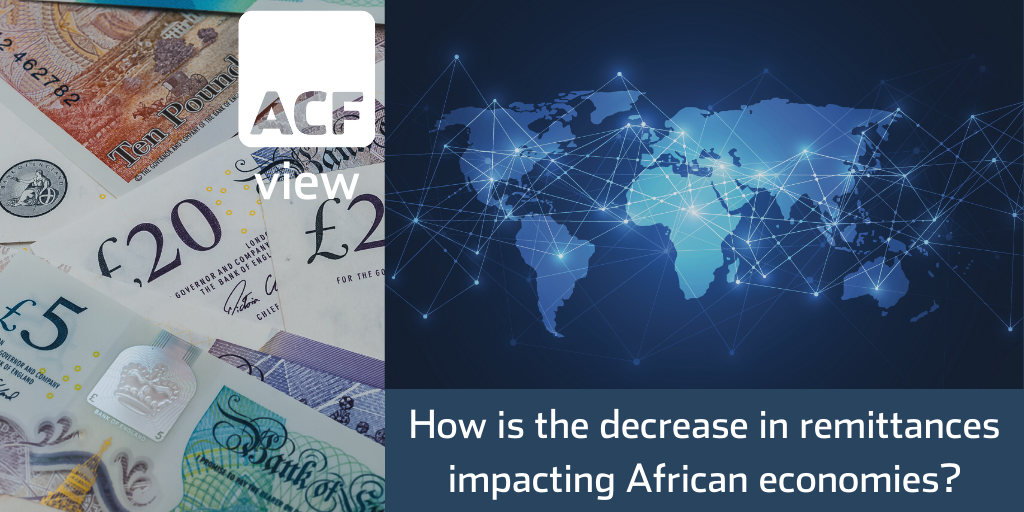How is the decrease in remittances impacting African economies?
Remittances to Africa are sharply declining as a result of COVID-19. Statistics from one payment company show that transfers from Britain to Africa have fallen by 80% and another show transfers from Italy have fallen by 90%. Many individuals in Africa work in industries that have been temporarily shut down and others are not eligible for welfare or stimulus packages.
Sending cash has become difficult as most money-transfer shops are closed and mobile transfers only makeup 15-20% of remittance transfers. Furthermore, with planes being grounded many of these businesses are unable to fly bank notes to Africa via the Middle East. (This is done as a result of western banks refusing to transact with African banks due to US anti-money laundering regulations.)
Remittances work as an indirect form of fiscal stimulus. They increase national income by injecting cash into the economy which is what all economies are trying to do during this pandemic, albeit at a fairly slow pace. Remittances drive economic and market growth and are also a source of foreign currency.
With fiscal stimuli finally coming into effect, this could potentially lead to a rise in remittances as individuals would be able to send money home to Africa. Countries are slowly loosening lockdown restrictions allowing certain shops to open back up. If money-transfer shops are allowed to re-open this could ease some of the economic stress that African countries are experiencing as a result of COVID-19.
















